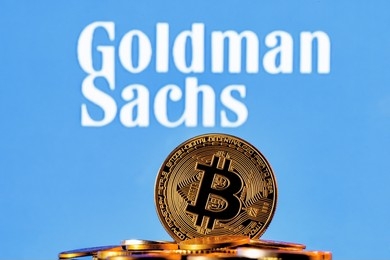Retail investors have been the primary driving force in the recent rise of Bitcoin and cryptocurrency prices in general. However, institutional investors are now beginning to enter the market, according to Mathew McDermott, the head of digital assets at Goldman Sachs.
Bitcoin Rally Cools Down
Speaking at the Digital Asset Summit (DAS) conference in London, McDermott noted that while retail investors have been the main drivers of the price action, there is a noticeable shift as institutions increasingly show interest and participation in the cryptocurrency market, reflecting the growing acceptance and recognition of cryptocurrencies as a legitimate asset class.
McDermott highlighted significant changes witnessed this year regarding the types of clients and the trading volumes. The involvement of institutional investors is seen as a significant development for the cryptocurrency market, as it brings additional liquidity, stability, and credibility.
While the exact factors driving Bitcoin’s recent price gains remain uncertain, the launch of US spot Bitcoin exchange-traded funds (ETFs) this year has been identified as a notable catalyst. McDermott described the ETFs as causing a “psychological shift” in the market.
However, the rally in Bitcoin and other cryptocurrencies has cooled off somewhat in recent days, with BTC plunging more than 18% to $60,900 on Tuesday, coinciding with a broader decline in riskier assets on signs that the Federal Reserve may not cut interest rates as much as previously expected.
Optimism Amidst Crypto Market Challenges
The cryptocurrency market experienced a notable boom during 2020 and 2021, fueled by ultra-low interest rates that encouraged speculative investments. However, this period was followed by a sharp downturn in 2022, with several high-profile crypto-related failures and bankruptcies, including FTX, resulting in significant losses for investors.
McDermott mentioned that Goldman Sachs has examined bankruptcy claims and explored other investment opportunities in this context.
Regulators have consistently warned about the high risks of Bitcoin and cryptocurrencies, emphasizing their limited real-world utility. McDermott acknowledged that there is currently some leverage in the system, but he expressed that it is not at the same level of “hyperbole” as in previous years.
In addition to their interest in cryptocurrencies, various banks, including Goldman Sachs, have recognized the potential of blockchain technology that underlies these digital assets. They believe blockchain technology could be applied to trade other assets beyond cryptocurrencies.
Pilot projects exploring tokenizing traditional financial assets, such as bonds, have been initiated. Still, the routine issuance and establishment of a liquid secondary market have yet to be realized.
Ultimately, McDermott expressed optimism about the future, stating that he expects to witness the tokenization of more asset classes and the development of scalable solutions in the next few years. This suggests that adopting and integrating blockchain technology in traditional financial systems may accelerate, providing new opportunities.
Despite the market downturn, as of this writing, bitcoin has climbed back to the $64,000 mark, showing increased volatility in recent days.
Featured image from Shutterstock, chart from TradingView.com
Credit: Source link























